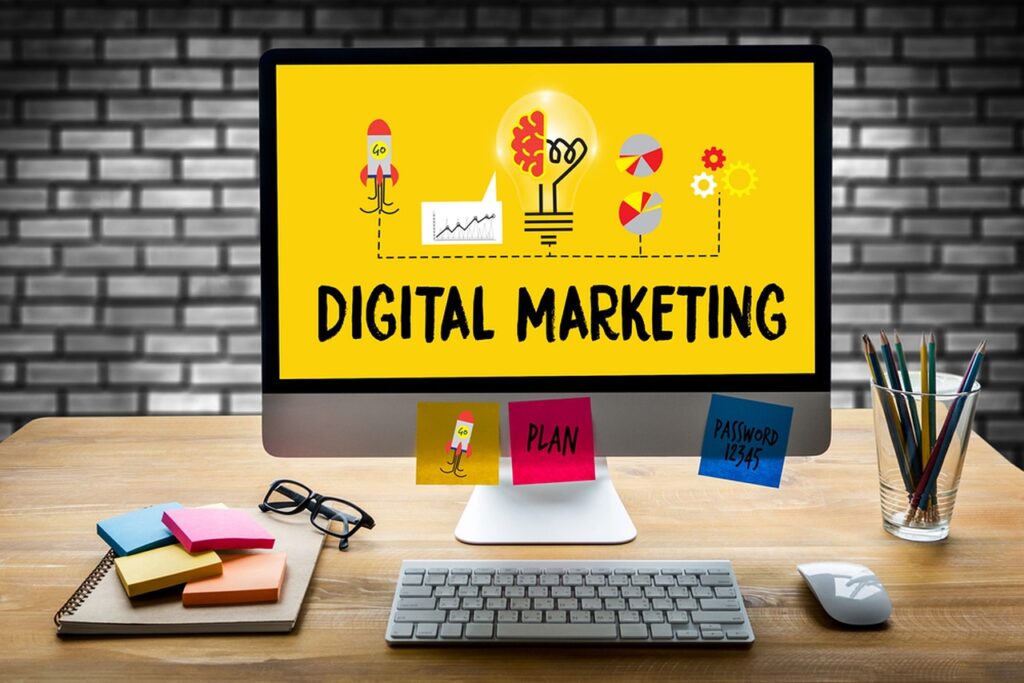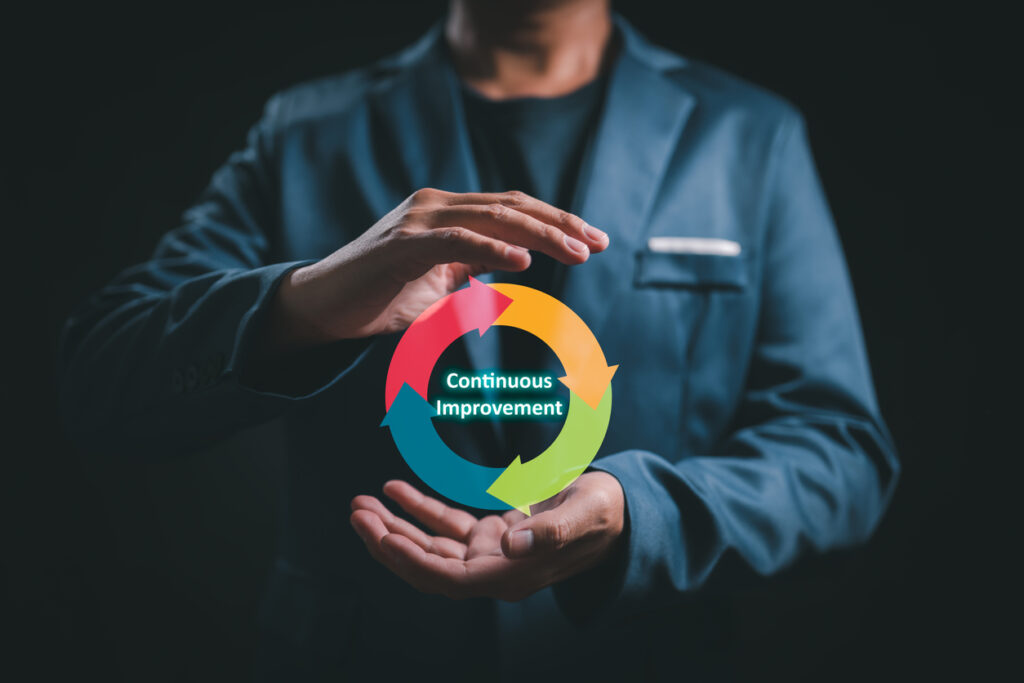Table of Contents
ToggleI. Introduction to Digital Marketing Services
A. Definition and Importance
Understanding Digital MarketingDigital marketing involves promoting products or services using the internet and digital technologies. This can include a of online platforms, from websites to social media channels, emails, and search engines. The primary goal is to reach a wider audience in a direct and measurable way.
The Role of Digital Marketing in Business Growth For businesses today, digital marketing isn’t just an option; it’s a necessity. It allows businesses to connect with customers where they spend a significant amount of time—online. By utilizing various tools and strategies, businesses can create brand awareness, generate leads, and drive sales.
Differences Between Traditional and Digital MarketingUnlike traditional marketing, which often relies on print ads, billboards, and TV commercials, digital marketing offers real-time interaction and analytics. Digital campaigns can be modified on the fly, making them more flexible and often more cost-effective.

B. Historical Context
Evolution of Marketing in the Digital AgeThe internet revolution changed everything. What started as simple websites has evolved into sophisticated platforms for communication and commerce. Companies today use various digital channels to create a cohesive marketing strategy that reaches people worldwide.
Impact of Technology on Marketing PracticesTechnology has made it easier for businesses to gather data about consumer behavior, preferences, and trends. With these insights, companies can create marketing campaigns that resonate more with their audience.
The Shift from Print to DigitalAs more consumers turn to online sources for information and shopping, businesses have shifted focus from print advertising to digital strategies. This move has opened up new avenues for engagement and measurement of marketing success.
C. Overview of Digital Marketing Channels
Common Digital Marketing ChannelsThe digital world encompasses many channels, including SEO, social media, email marketing, content marketing, and PPC advertising. Each has its unique benefits and can cater to different business goals.
Differences Between Owned, Paid, and Earned Media
Owned Media: These are the channels you own, like your website or blog.
Paid Media: This refers to advertising you pay for, such as Google Ads or paid social media promotions.
Earned Media: This is organic strategy and publicity that you earn through word of mouth, shares, and mentions.
Integrating Various Digital ChannelsSuccessful digital marketing strategies leverage multiple channels together, creating a cohesive message that enhances your brand’s visibility and impact.
II. Types of Digital Marketing Services
A. Search Engine Optimization (SEO)
On-Page TechniquesOn-page SEO involves optimizing individual pages to rank higher in search engines. This includes using relevant keywords, creating engaging content, and ensuring a good user experience.
Off-Page Strategies and Link BuildingOff-page SEO focuses on building external links and gaining authority from other websites. Quality links signal to search engines that your content is credible and trustworthy.
Technical SEO EssentialsTechnical SEO ensures that your website is easy for search engines to crawl and index. This covers aspects like site speed, mobile-friendliness, and proper indexing.
B. Social Media Marketing
Building Brand Awareness on Social PlatformsSocial media is a powerful tool for reaching potential customers. By sharing relevant content and engaging with followers, businesses can create a memorable brand presence.
Creating Engaging Content for Different AudiencesUnderstanding what type of content resonates with your audience is vital. For example, younger audiences may prefer visual content like videos and images, while older demographics might appreciate articles or informative posts.
Measuring Social Media SuccessTracking metrics like engagement rates, shares, and conversions helps determine the success of your social media strategy.

C. Content Marketing
Importance of High-Quality ContentQuality content builds trust with your audience and establishes your expertise in the industry. When people find value in your content, they are more likely to become customers.
Types of Content: Blogs, Videos, InfographicsThere are many forms of content. Blogs provide detailed insights, videos offer visual storytelling, and infographics can distill complex information into digestible visuals.
Content Distribution StrategiesSimply creating content isn’t enough; it must be distributed effectively. Use social media, email newsletters, and other platforms to reach your audience where they are.
D. Email Marketing
Building an Effective Email ListStart by collecting emails from interested parties, offering them valuable content or promotions. A solid email list is the backbone of any successful email marketing strategy.
Crafting Compelling Email CampaignsPersonalization is key. Ensure that your emails are engaging and relevant to your audience, using catchy subject lines and clear calls-to-action.
Analyzing Email Marketing MetricsLook at metrics like open rates, click-through rates, and conversions to gauge the effectiveness of your campaigns and improve future efforts.

E. Pay-Per-Click Advertising (PPC)
Understanding PPC and Its BenefitsPPC is a model where advertisers pay each time a user clicks on their ad. It allows for immediate visibility on search engines and can yield significant traffic.
Key Platforms for PPC AdvertisingPopular platforms like Google Ads and Facebook Ads provide businesses with various targeting options to reach specific audiences effectively.
Tips for Effective PPC CampaignsFocus on choosing the right keywords, writing compelling ad copy, and continually optimizing your campaigns based on performance data.
III. Developing a Digital Marketing Strategy
A. Setting Clear Goals
Identifying Business ObjectivesYour marketing strategy should align with your overall business goals. Whether it’s increasing sales, boosting brand awareness, or enhancing customer engagement, clarity in objectives is essential.
Defining Key Performance Indicators (KPIs)KPIs help measure the success of your campaigns. These could include metrics like traffic, conversion rates, and ROI.
Aligning Goals with Marketing EffortsEnsure that your marketing actions directly contribute to your defined goals, allowing for smoother execution and better outcomes

B. Understanding Your Target Audience
Creating Customer PersonasDevelop detailed profiles of your ideal customers, which include demographics, preferences, and behaviors. This helps tailor your marketing efforts more effectively.
Conducting Market ResearchUtilize surveys, social media insights, and analytics tools to gather data about your audience’s needs and preferences.
Analyzing Customer BehaviorReviewing how customers interact with your brand—whether through website visits, social media engagement, or purchasing behavior—provides valuable insights for refining your strategy.

C. Competitor Analysis
Identifying CompetitorsUnderstand who your direct and indirect competitors are. Knowing the landscape helps identify opportunities and threats.
Evaluating Competitor StrategiesExamine your competitors’ marketing strategies, including their content, SEO tactics, and social media presence. This can reveal gaps to exploit or ideas to implement.
Learnings from Competitor Strengths and WeaknessesBy analyzing what works for competitors and what doesn’t, you can refine your approach to stand out in the market.
IV. Implementation of Digital Marketing Services
A. Budgeting and Resource Allocation
Estimating Marketing CostsCalculate costs for each aspect of your digital marketing plan, from advertising budgets to content production.
Allocating Resources WiselyPrioritize channels that align with your goals and audience preferences, ensuring optimal use of your resources.
Adjusting Budget Based on PerformanceBe flexible. If a strategy isn’t working as expected, be ready to reallocate your budget to more effective avenues.
B. Tools and Technologies
Essential Tools for Digital MarketingTools like Google Analytics for data tracking, Hootsuite for social media management, and Mailchimp for email marketing can enhance your efforts and save time.
The Role of Automation in MarketingAutomation can streamline repetitive tasks, such as sending email newsletters or scheduling social media posts, allowing for focus on strategy and creativity.
Keeping Up with Technology TrendsStay informed about emerging trends and technologies, ensuring your strategies remain relevant in a fast-changing digital landscape.

C. Team and Skills Development
Assembling a Digital Marketing TeamHaving the right mix of skills is crucial. Consider hiring experts in SEO, content creation, social media management, and analytics.
Training and Upskilling StaffConduct regular training sessions to keep your team updated with the latest digital marketing strategies and tools.
Collaboration and Communication StrategiesFoster an environment of open communication and collaboration, allowing team members to share ideas and insights that can enhance overall performance.

V. Measuring Success in Digital Marketing
A. Key Metrics and Analytics
Website Traffic and User EngagementMonitor how many visitors your website is attracting and how they engage with your content. High engagement indicates valuable content.
Conversion Rates and ROIConversion rate reflects how many visitors take desired actions (like making a purchase). A high ROI indicates that your marketing efforts are profitable.
Analyzing Social Media PerformanceEvaluate engagement metrics like likes, shares, and comments to understand what resonates with your audience.
B. Continuous Improvement
Importance of Regular ReviewsRegularly assess the performance of your marketing strategies to identify strengths and areas for improvement.
A/B Testing for OptimizationExperiment with different elements of your marketing (like subject lines or visual designs) to see what performs better and optimize accordingly.
Adjusting Strategies Based on DataUse the insights gained from analytics to tweak your strategies, ensuring they remain effective and aligned with your goals.

C. Reporting and Communication
Creating Reports for StakeholdersDevelop clear, concise reports summarizing performance metrics and insights, essential for keeping stakeholders informed.
Communicating Results EffectivelyEnsure all team members understand what the data means, promoting a collective effort towards improvement.
Setting Future Directions Based on FindingsUse insights gained from reports to guide future marketing strategies, ensuring continued growth and adaptation.
Conclusion
Digital marketing services play a crucial role in today’s business landscape, helping companies connect with their audiences, build brand awareness, and achieve growth. As technologies and trends evolve, staying informed and adaptable will ensure your marketing efforts remain effective and competitive in the digital space.
FAQs
What are the essential digital marketing services every business should consider?Businesses should focus on SEO, content marketing, social media marketing, email marketing, and PPC advertising.
How can a small business effectively utilize digital marketing?Starting with a clear strategy, identifying their target audience, and using cost-effective channels like social media and email can greatly benefit small businesses.
What are the most cost-effective digital marketing strategies?Content marketing and social media marketing are often cost-effective strategies that require minimal investment but can yield high engagement.
How often should I evaluate my digital marketing strategy?Regular reviews, typically quarterly, help assess effectiveness and allow adjustments based on performance metrics.
Is it necessary to hire a digital marketing agency or can I do it in-house?While in-house teams can manage marketing effectively, hiring an agency can provide specialized expertise and an outsider’s perspective that may benefit strategy development.